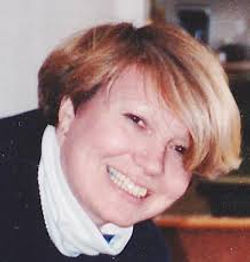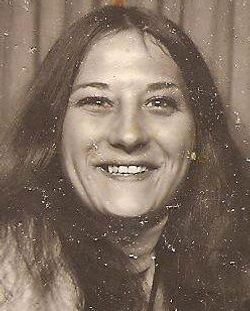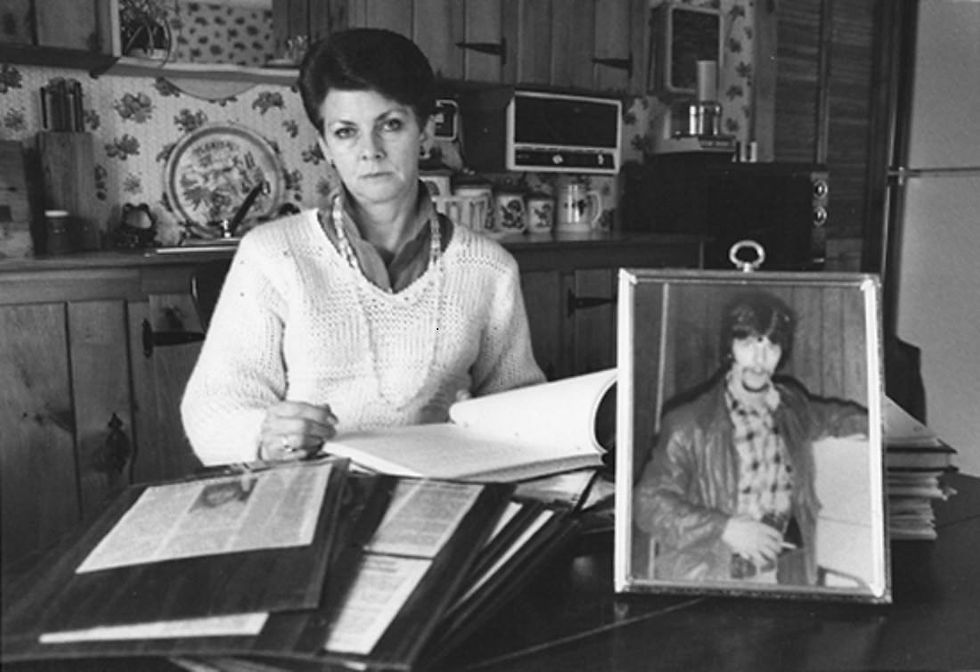BOARD OF DIRECTORS
“Justice will not be served until those who are unaffected are as outraged as those who are.” - Benjamin Franklin
“Victims’ families need closure; they deserve to know what happened to their loved ones and to have the perpetrators brought to justice,”
- Senator Linda Valentino, the Senate Chair of the Judiciary Committee.
 |  |  |
|---|---|---|
 |  |  |
 |  |  |
 |  |  |
 |  |  |
 |  |  |
 |  |  |
 |  |  |
 |  |  |
 |  |  |
 |  |  |
 |  |  |
 |  |  |
 |  |  |
 |  |  |
 |  |  |
 |  |  |
2021 Board of Directors
Maine Cold Case Alliance Director:
Andrea Thompson
Maine Cold Case Alliance Founder:
Patrick Day
HAAD Enough/ Parents of Murdered Children Founder:
Lee Cochran
Opening
President
Marc Joyal
Robert Joyal
Member
Cathy Napier
Tom Na[ier
Mark Babtiz
Elan Survivors LLC
Member
Linda Perkins
Ludger Belanger
Treasurer/ Media Spokesperson
Shelia Simoneau
Wanda Mitchell
Member

21-year-old Thomas Napier left the Lyman home of his grandparents on October 29, 1993, saying he was going to attend a Halloween party in Biddeford. Upon learning the party was canceled, a friend claims Thomas was heading to visit other friends. Police learned that later that night he may have been involved in a fight in the backyard of an apartment complex at 24 Bradley Street in Saco. Napier’s car later was found in the parking lot of that complex.

Feb. 18, 1981, 36 years ago today, my son Mike was murdered. He lay under this fire rubble for six days. On Feb. 25, 1981 I was told that my son had died in an accident. Which turned out to be untrue. He had been murdered. The photo of him and his girlfriend was taken a few hours before his death. The pain lessens with time but never goes away

Unsolved Homicides Ludger Belanger Case date: 1975 Town: Route 105, Washington On 11-25-75 at 0900 hours, Ludger Belanger was dropped on Route 105 in Washington by his brother and wife to go hunting. He had a .30-30 hunting rifle in his possession. He advised his wife he would be home in one hour. He was never seen again. Investigation revealed that Ludger had shot his deer, drug it to the road and was picked up by someone in a motor vehicle. Contact: Maine State Police Major Crimes Unit - C

21-year-old Thomas Napier left the Lyman home of his grandparents on October 29, 1993, saying he was going to attend a Halloween party in Biddeford. Upon learning the party was canceled, a friend claims Thomas was heading to visit other friends. Police learned that later that night he may have been involved in a fight in the backyard of an apartment complex at 24 Bradley Street in Saco. Napier’s car later was found in the parking lot of that complex.
Rep. Steve Stanley
Rep. Stephen Stanley introduced bill LD-1734 to the Maine Legislature. He is returning to the Maine House of Representatives, having previously served ten years in both the House and the Senate. He is a member of the Joint Standing Committee on Taxation.
Rep. Stanley is a member of Penquis Cap, Katahdin Area Rotary, and the Katahdin Area Chamber of Commerce. He was previously county commissioner for eight years.
Rep. Stanley grew up in the Katahdin region and now resides in Medway. He currently works at a paper mill and he frequently plays golf. Rep. Stanley is married with two children and three grandchildren.
Pair of Maine lawmakers seek state funding for cold-case squad
Maine Lawmaker Proposes Cold Case Unit
Posted Thursday, February 13th, 2014 at 9:53 am.
Updated 4 months ago
By The Associated Pres
AUGUSTA, Maine (AP) — A Maine lawmaker wants the state to establish a new law enforcement unit to re-examine unsolved major criminal cases. State Rep. Stephen Stanley’s bill would create a four-person unit in the state Attorney General’s office to work exclusively on cold cases, with a prosecutor, police detectives and a crime laboratory worker. The unit would cost about $530,000 in the first year and about $430,000 in each subsequent year.
The Medway Democrat’s proposal was inspired by the unsolved 1980 slaying of a friend’s teenage daughter. His proposal has the support of Deputy Attorney General William Stokes. Stokes tells the Portland Press Herald, that Maine has 120 cold cases dating to 1953, including unsolved homicides, missing persons cases in which crimes are suspected and suspicious deaths that may have been crimes.
By Nick Sambides Jr., BDN Staff
EAST MILLINOCKET, Maine — Two state legislators said last week that they are working to secure funding for the state’s first cold-case squad to investigate unsolved homicides.
Rep. Steve Stanley, D-Medway, said he hopes that the support of newly-elected Rep. Karl Ward, R-Dedham — and the state’s recording a $49 million surplus at the end of the 2013-14 fiscal year — will be enough to convince Gov. Paul LePage and the Legislature to fund the proposed squad this year. He said the legislative session begins Jan. 7. “It is a very important bill to a lot of people,” Stanley said Tuesday. “I think we have a better chance because Karl Ward will be a sponsor of it. I think maybe we have a better chance if a Republican supports it.”
Ward said Wednesday that he has a meeting set up with LePage at the end of the month to discuss the bill and seek the governor’s support of it. “I’m going against my grain because I’m not a believer in expanding government, but when I look at the number of these cases and the anguish of the families, I’m getting behind it,” said Ward, adding that he thinks the effort will receive bipartisan support.
Joyce McLain is among the state’s 120 homicide victims whose cases remain unsolved, several of whom are listed on the page at maine.gov dedicated to them. A 16-year-old sophomore at Schenck High School in East Millinocket, she disappeared while jogging in her neighborhood on Aug. 8, 1980. Her bludgeoned body was found on Aug. 10. State police have said they have reviewed more than a dozen suspects in the McLain case, but no arrests have been made.
Ward said he was attending Schenck High School at the time McClain was killed and he remembers the traumatic effect it had on the town. But he said that’s not the only reason he wants to fund the cold-case squad through the state’s general fund.
“Joyce’s case is just one,” Ward said Wednesday. “My heart goes out to the families of all the victims in these cases. I would like to see the squad funded and get an email saying they solved their first case.”
Stanley submitted a bill in October 2013 authorizing a squad. The Maine House and Senate passed LD 1734, An Act To Create a Cold Case Homicide Unit in the Department of the Attorney General, and LePage signed it into law, but it languished on the special appropriations table because of a lack of funding. The squad, consisting of one lawyer from the attorney general’s office, two state police detectives and an employee of the state crime lab, required $500,000 to start up and then $424,000 in second-year funding, officials said.
LePage remains supportive of the squad and of the Legislature funding it, Adrienne Bennett, his spokeswoman, said in an email Wednesday.
The Maine attorney general’s office, which prosecutes homicide investigations and supports the squad, has said that Assistant Attorney General Lara M. Nomani handles cold cases. State police investigators work them part-time while also handling more recent cases.
Ward said the bill seeking funding should go to the state Legislature’s Revisor’s Office this week. Once the revisor’s office writes the bill, it will be submitted to legislative leaders for possible assignment to a committee, Stanley said.
Rockland resident Patrick Day, an East Millinocket native and volunteer who built a website dedicated to cold cases and the bill, coldcasesquadme.com, said that the failure of an effort to fund the squad through a federal grant last spring leaves the state little choice but to fund the squad now. “Now we don’t have that option of federal funding over our heads. Now we can pursue the state of Maine taking care of their own and doing the funding themselves,” Day said. “[State legislators] thought they could fund this bill by relying on the federal government and that didn’t happen. “I am not saying that in a negative way, but the reality is that it was such a longshot,” Day added. “They left all these families for another year without justice, and I think it is very sad that they did that.”
It was unclear whether a portion of the $49 million surplus, which came from state government savings and greater than expected individual and corporate income tax monies, could be used to fund a squad. Maine law restricts the uses of unanticipated revenues. But Day is hopeful. “Obviously there are lots of programs and needs out there, but this will be the third time we have tried to get funding for this bill,” Day said. “Now that the governor has spending under control, people will see that we have the funding to do this program, and it won’t put us in a hole. I think people will see that the program is going to be a benefit. We will be getting criminals off the street.”
BDN Metro Editor Michael J. Dowd contributed to this report.

An Act To Create a Cold Case Homicide Unit in the Department of the Attorney General
Be it enacted by the People of the State of Maine as follows:
Sec. 1. 5 MRSA §200-J is enacted to read:
§ 200-J. Cold case homicide unit
The Attorney General in collaboration with the Commissioner of Public Safety shall establish a cold case homicide unit within the Department of the Attorney General to work exclusively on unsolved murders in the State. The unit must consist of personnel from the Department of the Attorney General and the Department of Public Safety, Bureau of State Police and must include at a minimum one attorney from the Department of the Attorney General, 2 detectives from the Bureau of State Police and one employee of the bureau's crime laboratory. The Attorney General shall adopt rules for the operation of the unit. Rules adopted pursuant to this section are routine technical rules as defined in chapter 375, subchapter 2-A.
Sec. 2. 25 MRSA §1505-A, as enacted by PL 2001, c. 439, Pt. XXXX, §1, is repealed.
SUMMARY
This bill directs the Attorney General in collaboration with the Commissioner of Public Safety to establish a cold case homicide unit within the Department of the Attorney General to work exclusively on unsolved murders in the State.
Preliminary Fiscal Impact Statement
Net Cost (Savings)
FY 2013-14
FY 2014-15
Projections FY 2015-16
Projections FY 2016-17
General Fund
$0
$332,020
$279,441
$286,970
Highway Fund
Appropriations/Allocations
$0
$178,779
$150,467
$154,521
General Fund
$0
$332,020
$279,441
$286,970
Highway Fund
$0
$178,779
$150,467
$154,521
Fiscal Detail and Notes
Establishing a cold case unit would require a General Fund appropriation of $332,020 and Highway Fund allocation of $178,779 in fiscal year 2014-15 for two State Police Detective positions, one Forensic Chemist position and related costs. The Department of the Attorney General did not identify a need for additional resources at this time
"As a native Mainer, son of a mother born in a log cabin and a father who left school to fight in World War II, I was the first in my family to go to college. I graduated at the top of my class. I married my college sweetheart, finished school and we came back home to Maine to start a family and build our businesses.
Since moving back to Maine I have witnessed what bad public policies have done to our State. Maine’s business climate is suffering and too many of our kids and grandkids are leaving for greener pastures. I want to change that!
I’m going to stand and fight for our State, its future and our kids. And I will do this without taking a salary, every dime of which will be donated to support youth groups in each of the towns I represent.
All of my life, I’ve worked to make our region’s future a brighter one, but there is much work left to do."




